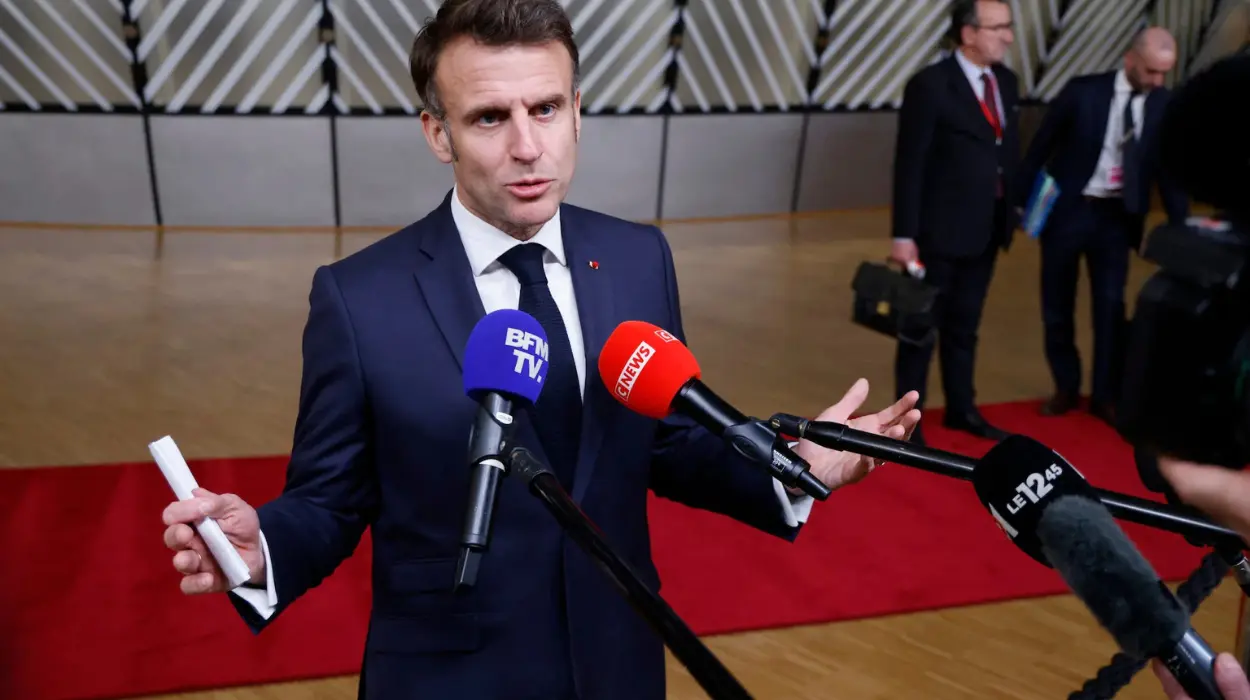Paris (Parliament Politics Magazine) – French President Emmanuel Macron faces political turmoil as 10-year French bond yields exceed Italy’s for the first time since 1998, raising market concerns.
As reported by The Telegraph, French 10-year bond yields have topped Italy’s for the first time since 1998, as President Emmanuel Macron faces growing political instability.
What’s behind the rise in French bond yields despite market calm?
The rise in borrowing costs follows Francois Bayrou’s ousting as Prime Minister. This has raised concerns over France’s economic growth.
French 10-year bond yields, reflecting the government’s borrowing cost, rose seven basis points to 3.489%. On Tuesday, Italy’s 10-year bond rate stayed at 3.486%. French 10-year bonds fell from last week’s 3.59% but are above last year’s 2.9%.
French 30-year borrowing costs stayed at 4.33%, down from last week’s 4.55%, their highest since 2009. British 30-year bond rates rose to 5.49% on Tuesday, below last week’s 27-year high of 5.72%.
With increasing public debt, the eurozone’s second-largest economy faces high government borrowing and growing concerns over fiscal stability.
French unions plan strikes and demonstrations tomorrow to protest the proposed national budget. Mr Bayrou’s budget plan included major spending cuts and the elimination of two bank holidays.
The CAC 40 gained 0.2% Tuesday, showing little impact from recent market unrest in France.
Charlotte de Montpellier’s stance on France’s economic outlook
Charlotte de Montpellier, an economist at ING, stated,
“Investment, hiring and consumption decisions could be delayed, further slowing economic activity. Rising market interest rates are pushing up financing costs, impacting some sectors such as real estate and construction.”
She added,
“After a mildly positive third quarter, stagnation looks increasingly probable in the final months of the year.”
How did Parliament oust Prime Minister Bayrou amid the debt crisis?
The French parliament voted to sack the prime minister over plans to rein in national debt, plunging the country into economic turmoil.
Following Mr Bayrou’s 364-194 defeat in a confidence vote, President Macron faces the task of appointing his fifth prime minister in under two years.
He aims to avoid another parliamentary election, with his office confirming a new prime minister will be named in the coming days.
What did Bayrou say to Parliament about France’s debt crisis?
Mr Bayrou, a close ally of President Macron with decades of experience, appealed to parliament to support his budget, warning that France’s debts were “submerging us.”
He said,
“You have the power to bring down the government, but you do not have the power to erase reality.”
The former prime minister added,
“Reality will remain relentless: expenses will continue to rise, and the burden of debt, already unbearable, will grow heavier and more costly.”
Boris Vallaud’s views on the socialist party’s readiness to govern
The chair of France’s Socialist Party, Boris Vallaud, said his party stands ready to take charge if President Macron calls on them.
He told the national assembly before the vote of confidence that, “We are ready if he comes to search for us.”
What did Deutsche Bank strategists say about France’s political challenges?
Macro strategists at Deutsche Bank stated,
“With the far-right National Rally and the far-left France Unbowed calling for snap elections, this would likely require a PM that can keep the centre-left Socialists from voting against the budget, as well as keeping the current centre-right coalition on board.”
What did Carsten Nickel say about France’s fiscal challenges?
Carsten Nickel, deputy director of Research at Teneo, said,
“While almost all parties agree on the dire state of France’s public finances, political camps are strongly divided over whether to address this problem through welfare reforms or tax hikes.”
He added,
“This complicates the search for big compromises that would entail a mix of both approaches to the country’s fiscal challenges.”
Key reasons for rising borrowing costs
Central banks raise key interest rates to combat high inflation, increasing borrowing costs for banks, businesses, and consumers. Lenders charge more when borrowers or the economy appear risky, such as during downturns or political instability.
High demand for loans can also push interest rates upward. Together, these factors influence the overall cost of borrowing in the economy.

